 James Berry
James Berry
Time Period: Post-Reconstruction through the Gilded Age (1875 - 1900) - Starting with B
 James Berry
James Berry
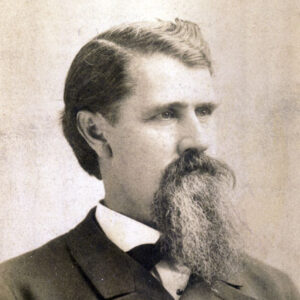 James Berry
James Berry
Berry, James Henderson
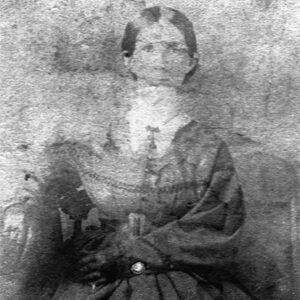 Virginia Berry
Virginia Berry
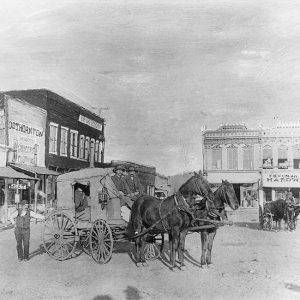 Berryville Public Square
Berryville Public Square
Big Buffalo Valley Historic District
aka: Boxley Valley Historic District
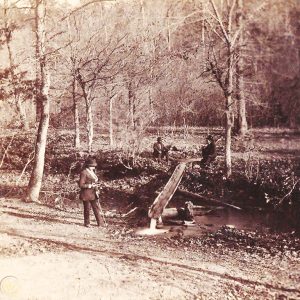 Big Chalybeate Spring
Big Chalybeate Spring
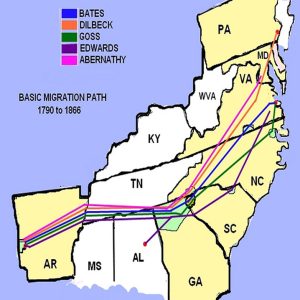 Big Fork Families
Big Fork Families
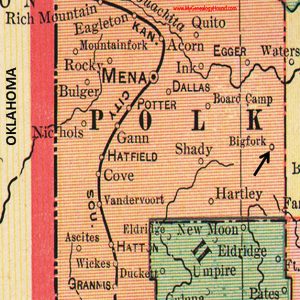 Big Fork Map
Big Fork Map
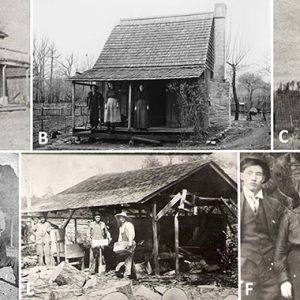 Big Fork Scenes
Big Fork Scenes
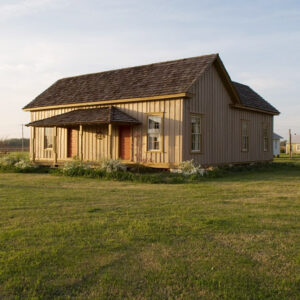 Big House
Big House
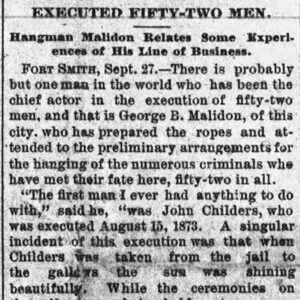 John Billy Execution Article
John Billy Execution Article
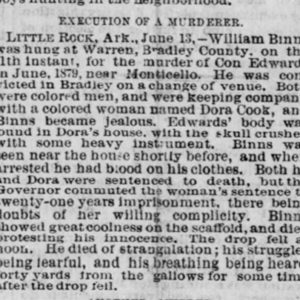 Binns, William (Execution of)
Binns, William (Execution of)
Binns, William (Execution of)
Biscoe Family (Lynching of)
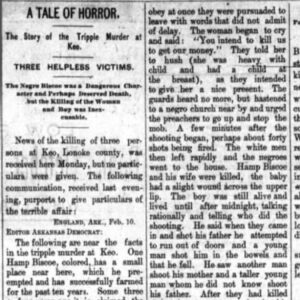 Biscoe Lynching Article
Biscoe Lynching Article
Black and Tan Republicans
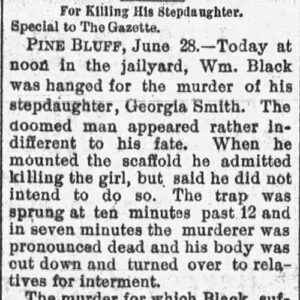 Henry Black Execution Article
Henry Black Execution Article
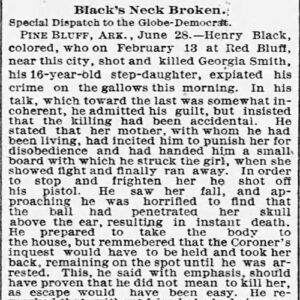 Henry Black Execution Article
Henry Black Execution Article
Black, Pickens W., Sr.
Black, William (Execution of)
aka: Henry Black (Execution of)
Blalock, Jerry (Execution of)
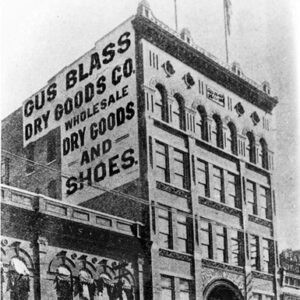 Blass Department Store
Blass Department Store
Blass, Gustave (Gus)
 Bertha Blass
Bertha Blass
 Gus Blass
Gus Blass
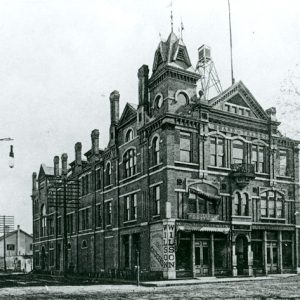 Board of Trade Building
Board of Trade Building
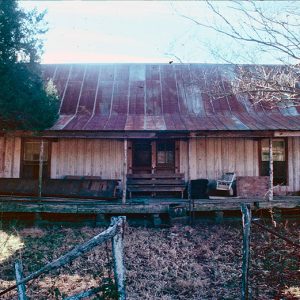 Dr. Boaz House
Dr. Boaz House
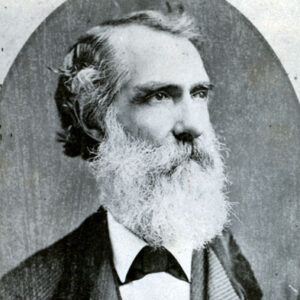 Joseph Bocage
Joseph Bocage
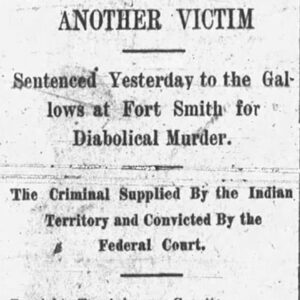 Bogle Execution Story
Bogle Execution Story
Bogle, Gus (Execution of)
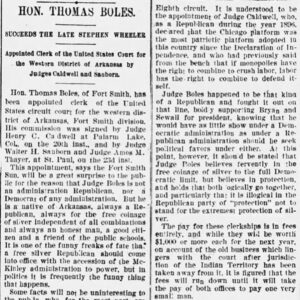 Boles Appointment
Boles Appointment
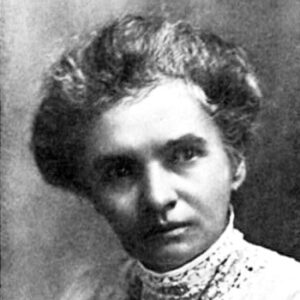 Magnolia Bond
Magnolia Bond
 Scott Bond
Scott Bond
Bond, Scott Winfield
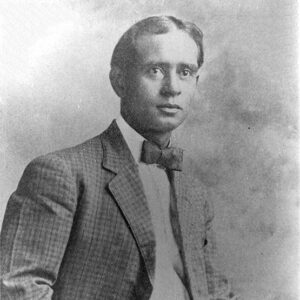 Theophilus Bond
Theophilus Bond
Bond, Ulysses Simpson (U. S.)
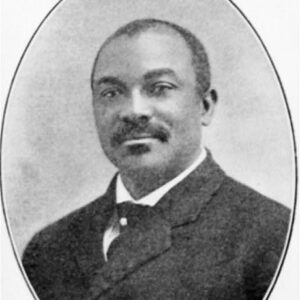 Joseph A. Booker
Joseph A. Booker
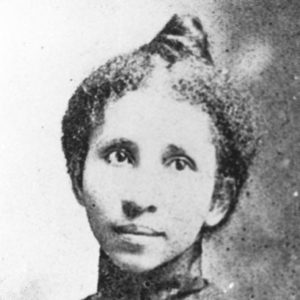 Mary Jane Booker
Mary Jane Booker
 Boone County Lynching
Boone County Lynching
Bowles (Lynching of)
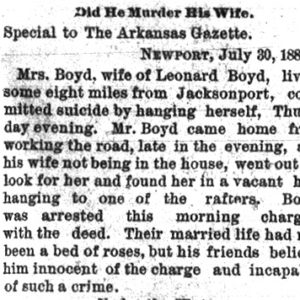 Boyd Arrest Story
Boyd Arrest Story
Boyd, Leonard (Lynching of)
 Bradley County Lynching
Bradley County Lynching
Brake, Bud (Reported Lynching of)
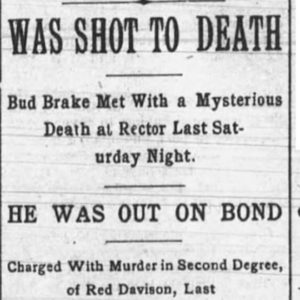 Bud Brake Lynching Article
Bud Brake Lynching Article
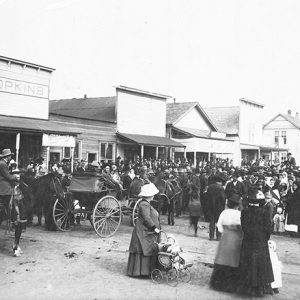 Branch Street Scene
Branch Street Scene
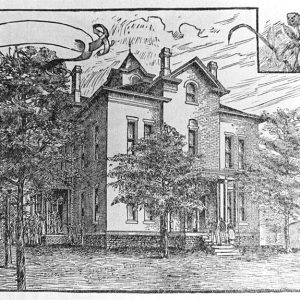 Branch Normal College
Branch Normal College
Branch, Charley (Lynching of)
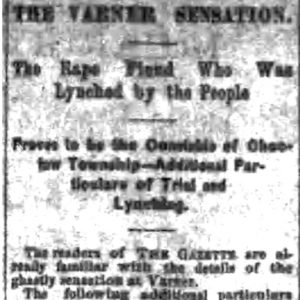 Branch Lynching Article
Branch Lynching Article




